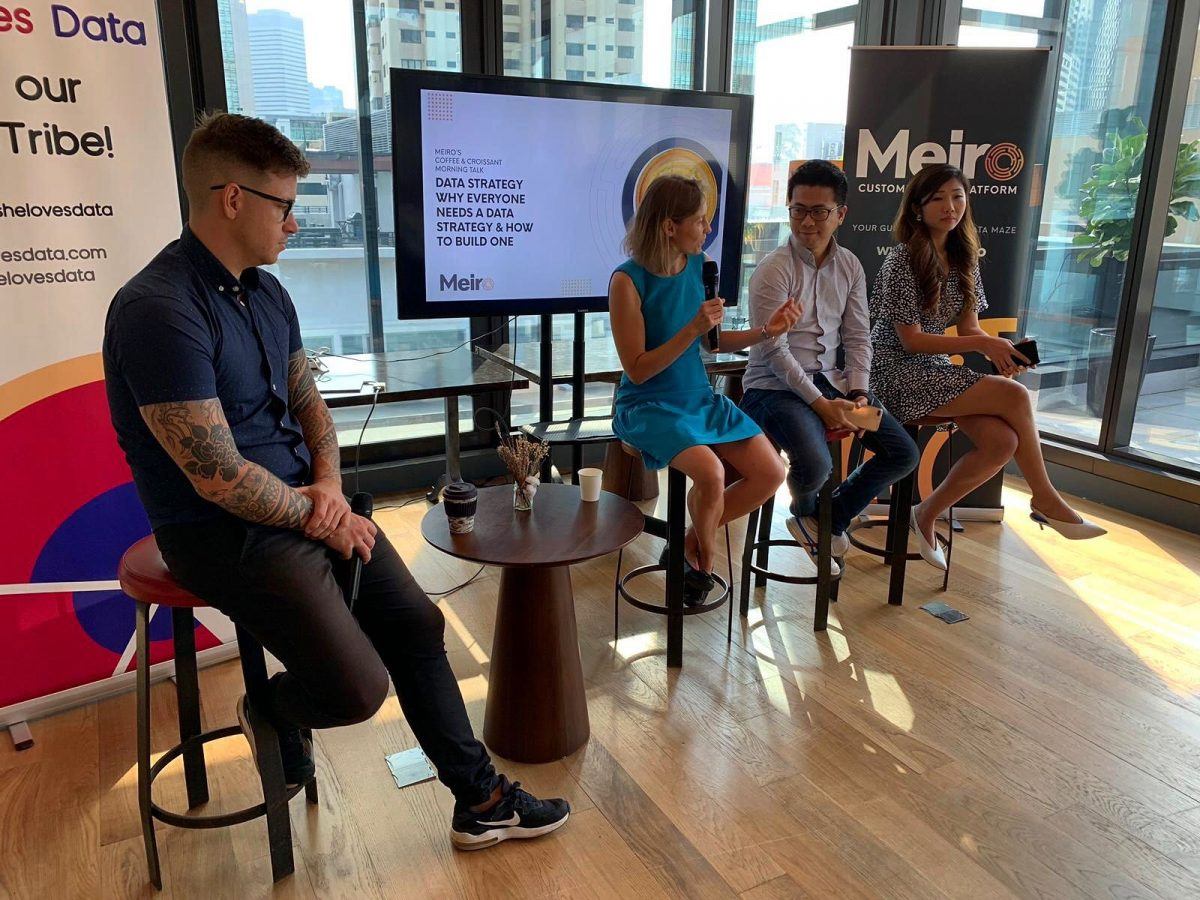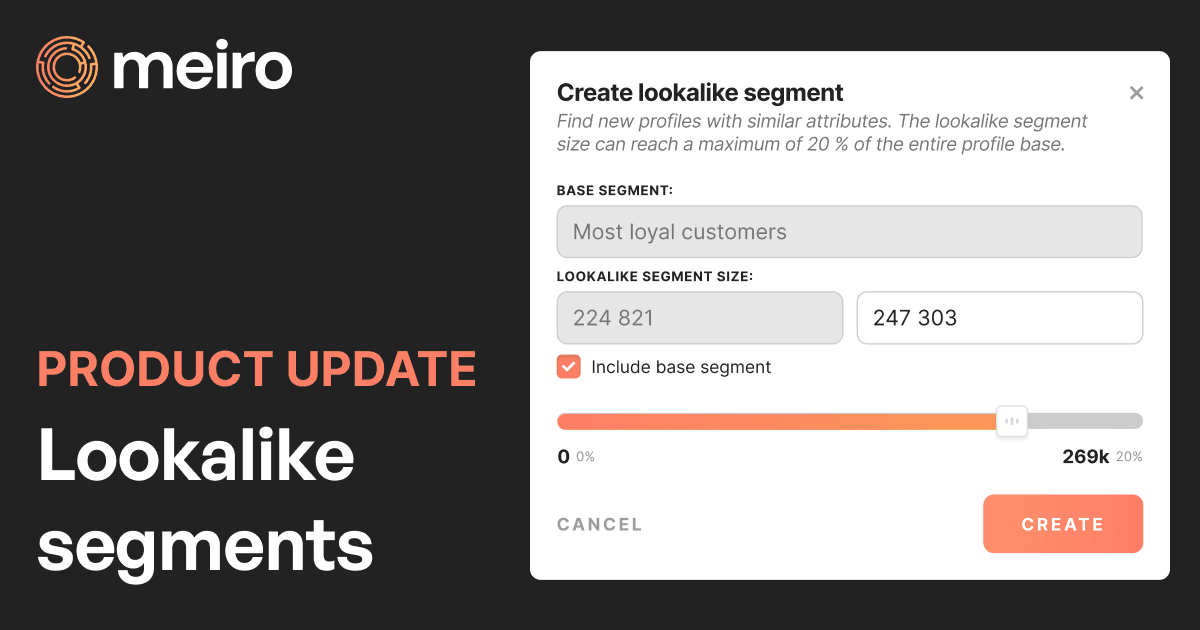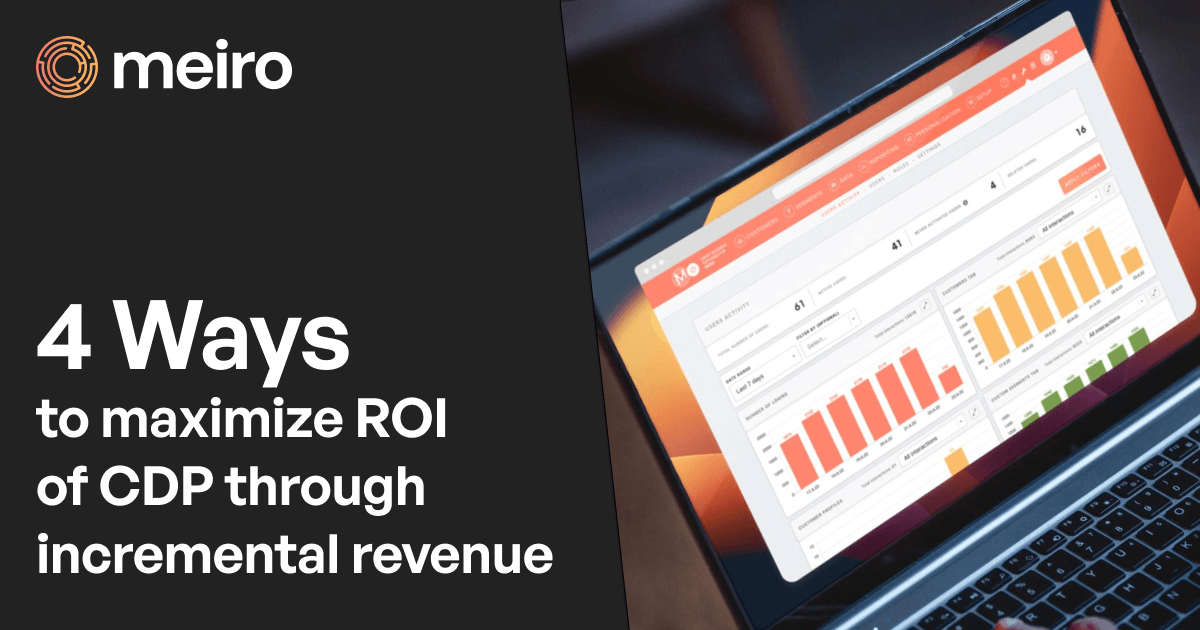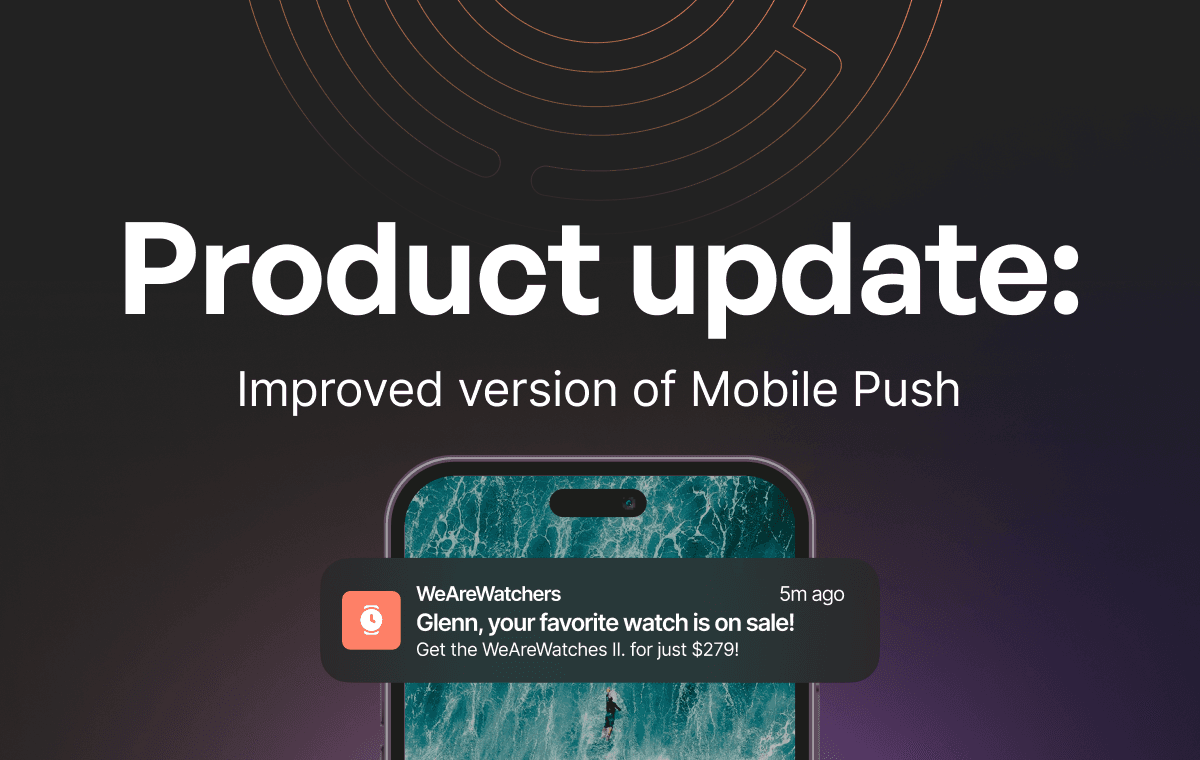Notes from Meiro Breakfast Session - Data Strategy

CEO | Founder
"Start with the big picture and have your roadmap. Be prepared for adjustments along the way.” - Quitterie Marque, General Manager, Data Analytics of International SOS
With more companies adopting new technology and getting more data poured in every day, how does one not lose the plot? Is it just a matter of stirring till it looks right? Last Thursday morning, we invited Quitterie Marque (General Manager, Data Analytics of International SOS), Trishe Goh (Head of Digital Strategy, Happy Marketer) and Ken Ling (Head of Digital Marketing, Esplanade) to talk about the big topic of data strategy. Here is a summary of the session.
Understanding data strategy.
Data strategy should be seen as a subcomponent of the overall business strategy. It needs to provide analytical support, have trackable KPIs and enhance each business priority. It can also be understood as two co-departments - offense and defense. An “offensive” data strategy would most commonly be found in digital marketing, where efforts drive profitability, revenue or recurring customers. A “defensive” data strategy encompasses efforts around data protection and security. The key is finding the right balance of both “offensive” and “defensive” strategies for the industry.
“Data strategy starts with change management. It has to be woven into an organisation as a culture rather than viewed and handled in silos by the management, marketing, IT, and data teams.” - Trishe Goh, Head of Digital Strategy, Happy Marketer.
Part of embracing a data strategy also requires an organisation-wide openness to new digital values and practices that are more befitting of a changing world. By subscribing to this culture, it allows companies to rapidly experiment and drive better decisions with data.
Who should be involved in creating a data strategy?
In most organisations, it is usually the Chief Marketing Officer (CMO) who is the advocate. In other organisations, it could start with direction from the Chief Data Officer (CDO) who works hand-in-hand with the CMO. The CDO starts by deciding how data should be collected, stored and managed in a proper manner. While having an internal champion is important, data strategy is largely shared ownership. It is important to get the team involved to define use cases and determine how the data strategy is aligned with the bigger business goals.
The difference between tactics and strategy.
A strategy can comprise of a set of processes that help businesses achieve their goals. A digital progress roadmap can be formed with a clear strategy. Various tactics fall under this roadmap. A tactic need not directly drive revenue, it could simply be deciding if a data warehouse or a data lake is more suitable. It is important for clients to recognise that execution needs to achieve the end goal and be aligned with the overall strategy. Businesses need to carefully balance tactics and strategy. They can do so by charting short, mid and long term goals which can be measured by KPIs.

Internal talent and external partners, how important are they?
There are two different models. Some companies prefer to have an in-house team of young digitally savvy marketers. Legacy brands would prefer to hire external agencies to help perform audits on what they have done and identify the meaning behind the data. If businesses are just starting out, an external agency could help build a digital roadmap if they do not have in-house resources yet. For more mature companies, teams made out of all internal members may not necessarily have the full capabilities to carry out a project. And teams of only external vendors may not fully understand the business needs. We realise that having both groups work together is one of the best approaches in terms of getting both the business acumen and technical perspective in one room.
Digital transformation is about people.
"Everyone should be equipped with digital skillsets because each function should not work in silos.” - Ken Ling, Head of Digital Marketing, Esplanade.
Data strategy isn’t all about technology. Education and culture are also integral parts of this transformation process. In order to build a digital mindset, businesses need to improve digital literacy across all levels. This can come in the form of workshops or having digital champions to spread the word throughout the organisation. Other methods include pairing new and experienced employees together where they can work together to meet a common goal. Facilitating more sharing sessions on how groups use data can also help keep the conversation going.
Ready to take your personalization game to the next level?
Unleash the full potential of your customer data. Let’s talk!
Spread the love:

Jana is the co-founder and CEO of Meiro. She is passionate about data, tea, art, diversity, and her non-profit initiative @Shelovesdata.


